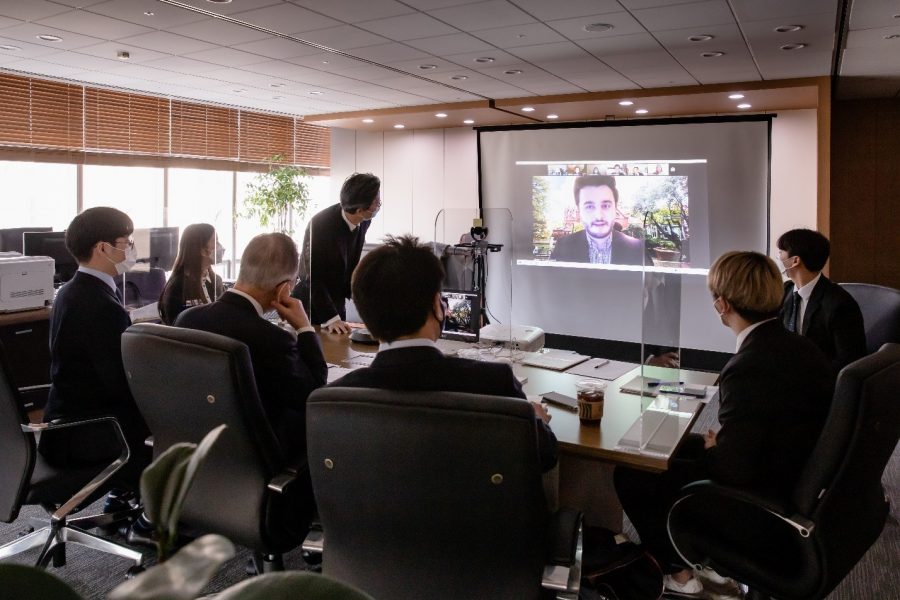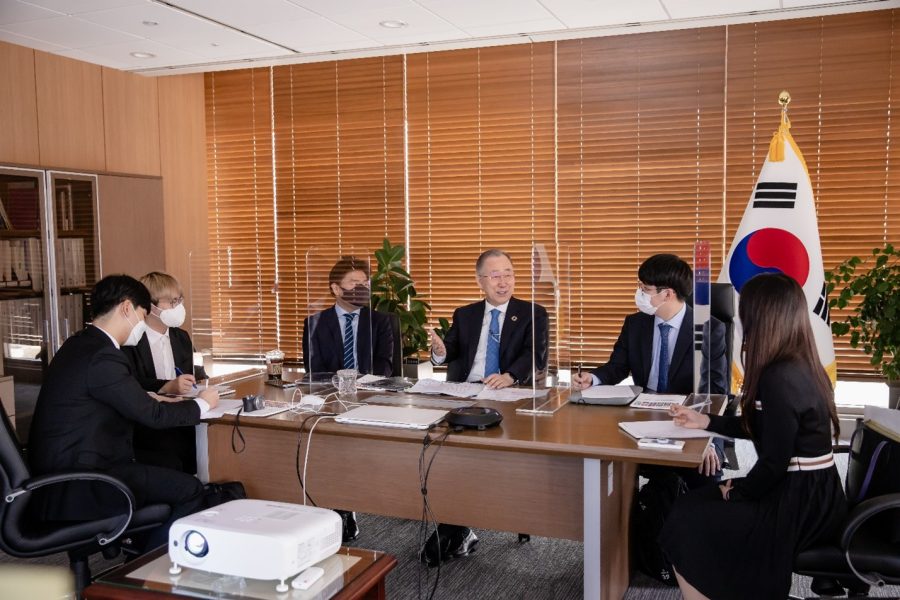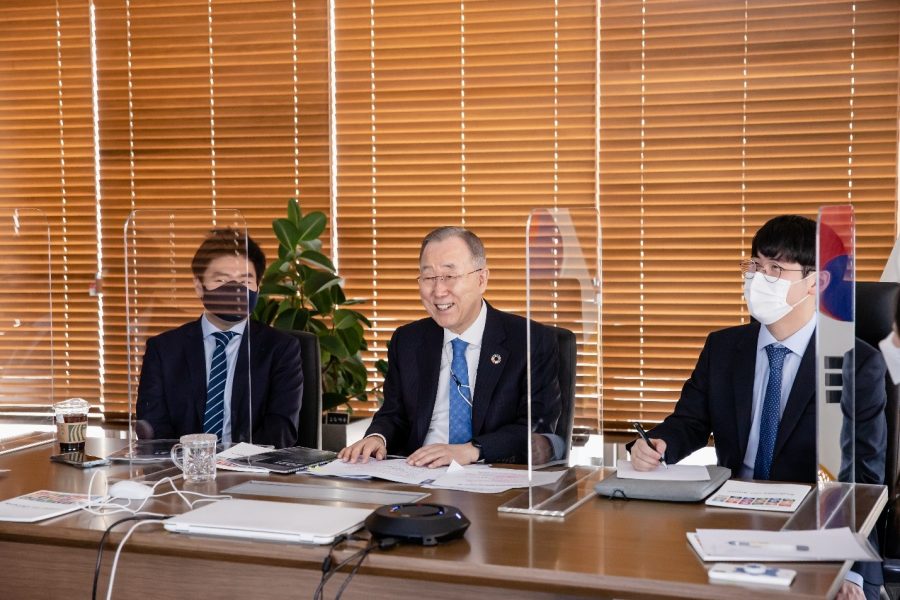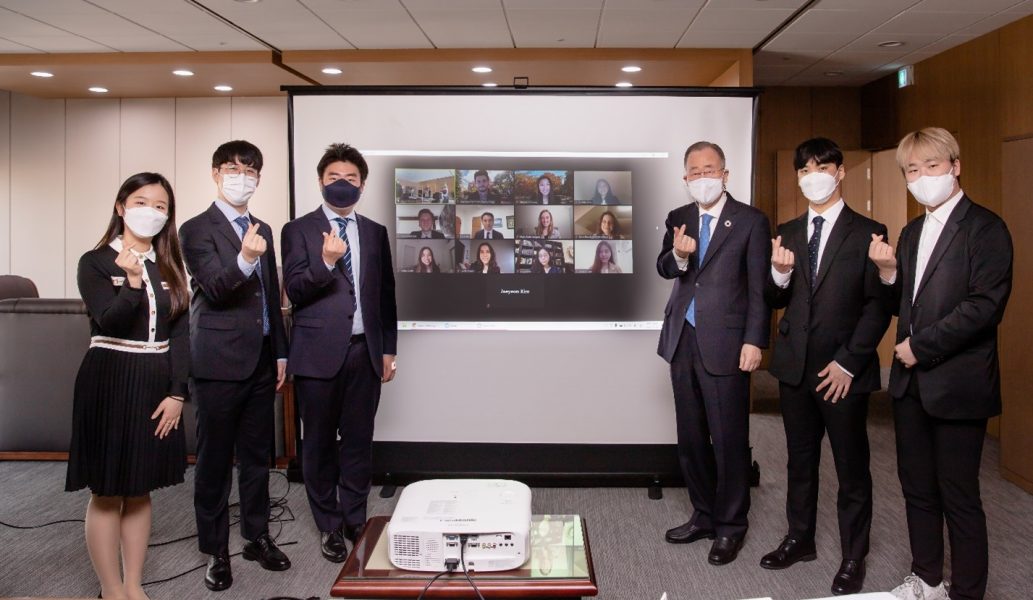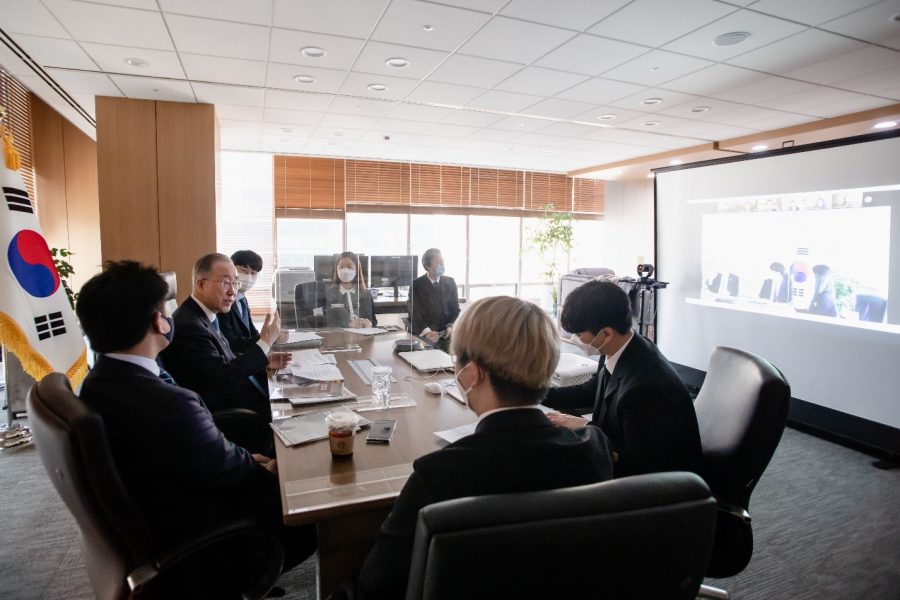ROK-US Youth Leaders Interview UN Secretary-General Ban Ki-moon
By “Mark” Min Seong Kim
Former UNODA-UNDPPA Northeast Asia Youth Steering Committee Member
Full resolution pictures from the interview can be downloaded here.
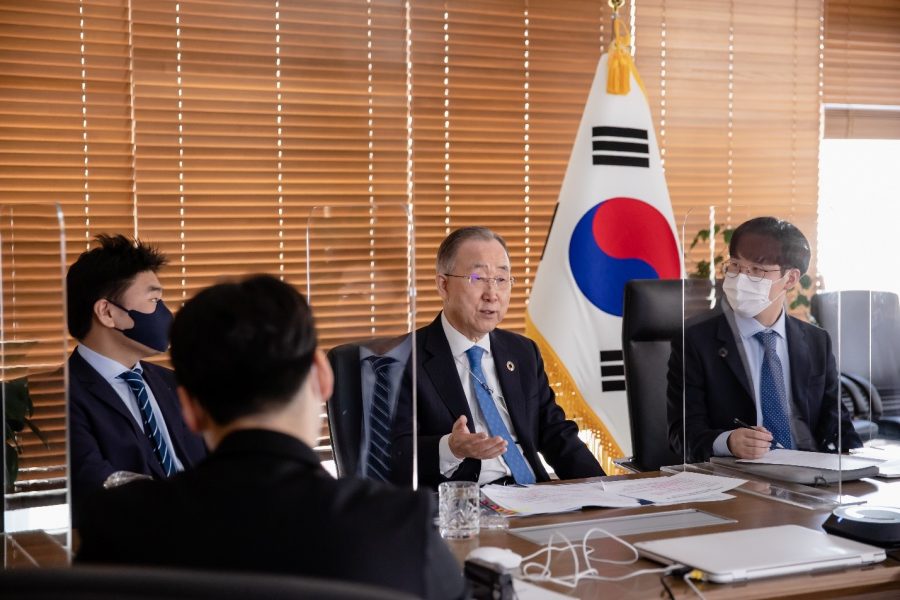
SEOUL, SOUTH KOREA & PHILADELPHIA, PA — The Penn Policy Consulting Group (PPC) at the University of Pennsylvania sat down for an exclusive interview with former United Nations Secretary-General Ban Ki-moon virtually and in-person, where they spoke about his career in diplomacy and the role of youth actors in shepherding global change. PPC members engaged with the former Secretary General about his distinguished public service career, commitment to addressing the global threat of climate change, and advice for students interested in working on global issues in the future.
Early years and inspirations
Secretary-General Ban highlighted his upbringing and how it inspired him to enter public service. Born under the Japanese colonial rule in Korea, the Secretary-General was a refugee in the Korean War and was forced to flee to his cousin’s house to escape the bombing. Although his family faced continued financial difficulties, he won an English competition hosted by the Red Cross and was selected to meet with US President Kennedy with global youth leaders.
This unique opportunity to visit the White House first ignited his dream of becoming a public servant. When President Kennedy asked what he wanted to become, Secretary-General Ban recalls that he immediately answered “diplomat” capable of advancing peace and development in his home country and beyond. He quickly achieved his dream and has risen through the ranks of the Republic of Korea Ministry of Foreign Affairs, eventually becoming the Minister of Foreign Affairs. In 2007, Ban was elected as the 8th Secretary-General and dedicated his decade-long tenure to champion human rights, climate change, security and disarmament, and sustainable development.
Messages for disarmament, peace, and human rights
Peace and security represent one of the three pillars of the UN. Naturally, Secretary-General Ban recalled that disarmament and peacebuilding serve as the top priorities throughout his tenure.
In his view, multilateral cooperation on nuclear disarmament is essential to achieving the vision of a world without nuclear weapons. For further progress, Ban believes that member states must remain fully committed to the landmark Nonproliferation Treaty (NPT) regime while imagining bold solutions like a categorical and universal ban on nuclear weapons. For this reason, he signed the International Campaign to Abolish Nuclear Weapons’ (ICAN) letter urging member states’ adoption of the Treaty of the Prohibition of Nuclear Weapons (TPNW) last year.
“The best way to get rid of the risks to international peace and security such as nuclear proliferation is to take a global response,” he said. “The international community has to take swift actions, centering on the UN, on such pressing issues immediately.”
As the former South Korean diplomat and Minister of Foreign Affairs, Secretary-General Ban has personally led challenging disarmament negotiations with North Korea. He emphasized that patient diplomatic engagement is the only viable solution to the DPRK nuclear crisis and commended the UN and global community’s active pursuit of multilateral diplomacy to denuclearize the Korean peninsula. Ban also applauded the Biden administration for recommitting to the New START treaty but expressed hopes that the US and other P5+1 recommit to the JCPOA in the near future.
The crucial role of the UN and multilateralism also extends to another pillar of the UN: human rights. One of the highlights of Secretary-General’s career is adoption of the Responsibility to Protect – also known as R2P – that allows the UN to intervene in cases whereby member states commit mass atrocities but does not take appropriate action to bring justice and alleviate heinous human rights violations. Secretary-General Ban fondly reminisced having appointed the UN’s first Special Adviser on the Responsibility to Protect and persuaded the UN Security Council to endorse R2P and affirm the international community’s collective belief that no form of genocide, war crimes, crimes against humanity, and grave human rights violations in armed conflicts would be tolerated.
“Justice will follow, justice will prevail, if not today, tomorrow,” Secretary-General said.
Climate change and the Paris Climate Change Agreement
The Secretary-General recounted that his proudest accomplishments are spearheading the adoptions of the Paris Climate Change Agreement and Sustainable Development Goals (SDGs). For both initiatives, Ban personally spearheaded negotiation, adoption, and implementation. The Paris Agreement and SDGs represent some of the most significant achievements of the UN to date.
He highlighted that persuading China and the US to sign the Paris Climate Agreement was an especially elusive task. The two countries produce more than 40% of global total emissions so efficacy of any climate agreement would have been crippled without the US and China’s signatures. Only after an unprecedented public relations campaign on climate change – which included a press conference in Antarctica – and tireless personal engagements with President Xi and Obama did the two countries adopt the Paris Agreement that stipulated universal obligations for reducing greenhouse gas emissions.
“Climate change is an existential threat to not only humanity but also the planet,” the former Secretary General said. “I have strongly insisted that we have to build a future where humanity can live in harmony with mother nature, and I am proud to have successfully led to the unanimous adoption of this landmark climate agreement at last.”
Beyond his climate change-related accomplishments at the UN, the former Secretary-General has spearheaded notable progress on the issue at home following his retirement. Since 2019, the Secretary-General has served as the Chairman of the National Council on Climate and Air Quality (NCCA), a Presidential committee established by the current Republic of Korea President Moon Jae-in. At the NCAA, the Secretary-General designed the International Day of Clean Air with the UN and introduced “PM2.5 Seasonal Management” to attempt to lower particulate matter emissions. While the Secretary General expressed pride in his efforts to combat this existential threat, he expressed disappointment that other key stakeholders – namely the Trump administration, which withdrew from the Paris Agreement in June 2017 – have not prioritized the issue.
“What I find regrettable is that the international community may not have had a sufficient sense of urgency of the climate crisis,” he said. “However, I am working in earnest still with hopes that I can contribute in any way possible based on my experience as UN Secretary-General.”
Messages for youth
PPC concluded the interview by asking Secretary-General Ban if he had any advice for students interested in global citizenship. He suggested that young adults extend a helping hand to those in need and remember our collective duty and responsibility to develop a more equitable and sustainable world. He also reminded us that COVID-19 directly relates to climate justice and preventing future pandemics requires immediate international action, which students can help catalyze. Ultimately, though, Secretary-General Ban emphasized that young people must have a unique blend of compassion and passion to create change at a global level.
“I often stress the importance of passion and compassion to youths,” he said, “I recommend that they have a sense of global citizenship, and that they should never lose empathy and consideration for others while having a sense of pride and confidence in oneself and actively harnessing their talent.”
Secretary-General Ban concluded the interview by challenging the global youth to remain civically engaged and tackle common sociopolitical issues as active global citizens. He urged all young people to actively engage with the UN and looked forward to seeing how collaborations between the body and global youth can lead to creative, bold solutions to the most pressing transnational challenges. The interview left members of Penn Policy Consulting Group optimistic about the change that can come from diplomacy, public service, and public policy.
“Hearing Secretary-General Ban speak about his career and his continued work was a true inspiration,” Co-President Eli Adler said. “At a time when global leadership can feel imperiled, the opportunity to speak directly with such a passionate figure should serve as a reminder that multilateralism and diplomacy remain powerful forces in fomenting change.”
Ultimately, Penn Policy Consulting is grateful for Secretary-General Ban’s leadership, humility, and advice on how to uphold their mission as a group championing the youth voice in government.
“He remains a true inspiration for our members and students across the globe, and we are excited to apply his wisdom in our future efforts working with our partners at the local, federal, and international levels,” Co-President Harrison Feinman said.
